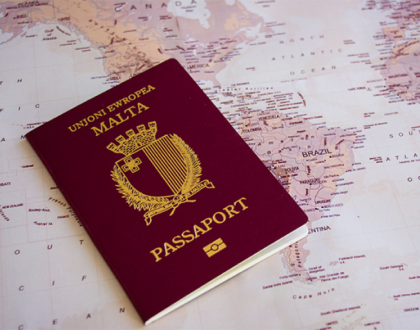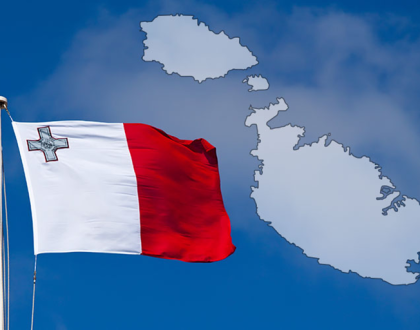Malta’s AML Measures in Online Gambling

Most people may not realize the critical role that Anti-Money Laundering (AML) measures play in maintaining the integrity of financial systems. As someone who is keenly interested in the regulatory landscape surrounding gambling and finance, I've observed that Malta, a popular hub for online gaming, is under scrutiny for its AML practices, particularly concerning the investigations conducted by the Malta Gaming Authority (MGA). This scrutiny raises several questions: Are MGA’s investigations robust enough? Are they effectively addressing the risks of money laundering in the gaming industry? I aim to explore these issues further.
Malta has become a desirable location for many online gambling operators. However, with such a booming industry comes the responsibility of ensuring compliance with stringent AML regulations. The European Union has implemented strict AML directives, and Malta is expected to align with these measures. Yet, I’ve noticed a growing concern over whether the MGA’s investigations are catching every potential risk or whether they are, in fact, missing the mark.
Firstly, it’s important to understand the framework within which the MGA operates. The authority is not just tasked with regulating gaming licenses; it is also responsible for preventing money laundering and ensuring that operators adhere to due diligence requirements. This involves ongoing monitoring of operators’ activities, transaction patterns, and their client onboarding processes. However, I’ve found that despite the existing regulations, the apparent lack of thorough investigations and timely enforcement actions against non-compliant operators raises eyebrows.
From my perspective, one of the critical areas where the MGA’s investigations seem to falter is in the timely identification of unusual patterns or activities. I often wonder how many suspicious transactions go unnoticed due to inadequate monitoring systems. While the authority has mechanisms for receiving tips and reports from operators, the feedback loop may not be as efficient as it should be. If I were running an operation, I would want to know that my reporting responsibilities were being taken seriously—to ensure that I am not inadvertently allowing money laundering activities to occur.
Moreover, the collaboration between various regulatory bodies is also an area that requires attention. I’ve seen instances where, despite the MGA being the primary regulator for gaming, there may be a disconnect in information sharing with financial institutions and other relevant authorities. This lack of coordination could lead to gaps in the overall AML framework, creating opportunities for money laundering. As a stakeholder in the industry, my expectation would be a unified front against financial crime, leveraging the expertise of each entity involved.
Furthermore, it bothers me that the penalties for non-compliance often don’t seem stringent enough to deter potential offenders. The fines imposed can sometimes be merely a cost of doing business for larger operators. To put it bluntly, if the MGA focuses solely on the financial penalties without addressing the underlying issues within operators’ compliance frameworks, you might find that many continue to operate with impunity.
In short, while the MGA has made strides in enhancing Malta's AML measures, I believe there is still significant room for improvement. Strengthening the investigative processes, enhancing collaboration among regulatory bodies, and imposing more stringent penalties are vital steps that can help ensure that the gaming sector in Malta does not become a vehicle for money laundering. Your vigilance and collective action as stakeholders will equally be vital in driving meaningful change in this arena.
FAQs
What are the primary responsibilities of the Malta Gaming Authority (MGA)?
The MGA is responsible for regulating gaming licenses, preventing money laundering, and ensuring operators adhere to due diligence requirements.
Why is Malta a hub for online gambling?
Malta offers a favorable regulatory environment and has become a popular destination for many online gambling operators seeking a stable legal framework.
How does the MGA monitor compliance with Anti-Money Laundering (AML) regulations?
The MGA monitors operators through ongoing assessments of their activities, transaction patterns, and client onboarding processes to ensure adherence to AML measures.
What challenges does the MGA face in enforcing AML measures?
The MGA faces challenges like timely identification of suspicious transactions, efficient communication with financial institutions, and sufficient penalties for non-compliance.
How can stakeholders contribute to improving AML practices in Malta?
Stakeholders can contribute by enhancing collaboration with regulatory bodies, reporting suspicious activities diligently, and advocating for stricter enforcement of AML regulations.
Michael
With over 20 years experience in web design, SEO and website promotion I always give you an expert advice in regard to any issues related to your Site Design, SEO, Internet Marketing, Promotion, Backlinks, Site Content. In order to help you find out what is missing or can be improved and get higher rankings in Google and more traffic.
Recommended Posts

Sportingtech Boosts Security with Continent 8
October 4, 2024

Legal Win for Malta’s Citizenship Program
October 4, 2024

Why iGaming Brands Choose Malta
October 4, 2024



